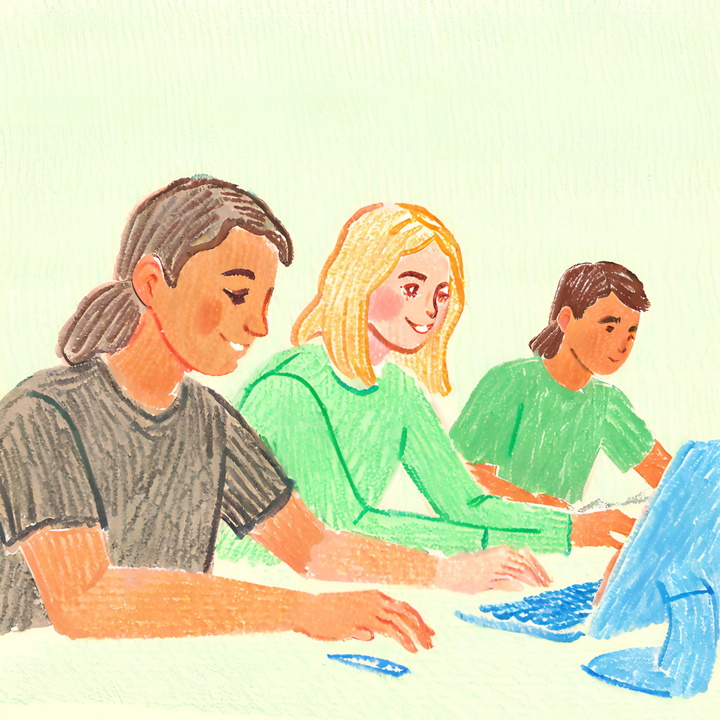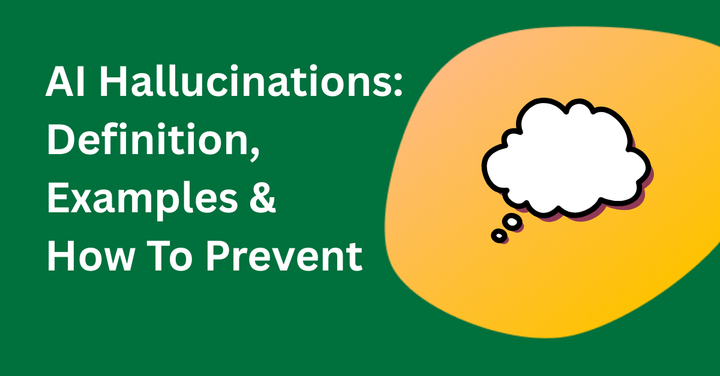How Teachers and Students Can Prevent AI Cheating and Save the College Essay

This essay is a part of a GPTZero Series of where we are giving a voice to writers around the world. Please feel free to reach out to GPTZero if you are interested in sharing your opinions on writing and voice on our platform, please email [email protected]
My name is Kellie and I am a professional writer and editor that has helped hundreds of students compose compelling essays over the past decade.
With the rise of artificial intelligence (AI) programs like ChatGPT, many are saying that the college essay is all but dead. I disagree, and I think there are specific, actionable steps teachers can take to prevent misues of AI programs. Today, I will walk you through how I believe teachers can prevent AI abuse, save the college essay, and create a more productive learning environment for students worldwide.
The ChatGPT Problem
While ChatGPT may be pretty new, getting out of doing your homework yourself definitely isn’t. For as long as there have been schools and students, there have been those who will do anything to outsource their work to someone else. Popular culture abounds with stories of homework assignments done by someone else, be it an older sibling, parent, or the person crushing on the protagonist.
Who amongst us can honestly say that they never realized at 9:00 PM on a Sunday that they had a major project due the next day? This (admittedly) was me at one point or another. I remember my entire family helping me, researching, drawing, and frantically helping get everything done in time. This was in the good old days before the Internet put knowledge (good or bad) at our very fingertips.
Yet lately, it seems like speed and cost trump authenticity and substance. This tendency feeds into our increasingly fast-paced way of life and our online consumerism, where quality of content is often compromised in favor of quick search results. With the advent of AI like ChatGPT, many have succumbed to the temptation of cutting and pasting a professor’s prompt into these all-knowing AI platforms to receive a “finished” essay in minutes.
Is it finished? Maybe. Is it good? No.
So why Is ChatGPT a bad option?
ChatGPT uses AI to create a sequence of predicted words and ideas with a word limit and other topical constraints. ChatGPT can generally only contribute a maximum of 500 relevant words. When a teacher requests a 750-word essay on the current musical Kimberly Akimbo, not only will a user’s created article get cut off, but ChatGPT might have no idea what to say since its knowledge base drops off around 2021.
In addition, ChatGPT doesn’t include in-text citations, so a student is looking at plagiarism accusations right off the bat. Few college-level written assignments don’t require students to reference sources, so using ChatGPT to write scientific reports or analytical essays is not that simple.
Professors Are Catching On Quickly
It’s not that professors are looking to put students on academic probation during this wave of ChatGPT use. It’s that they’re becoming more aware of what ChatGPT “sounds like,” especially compared to the typical student’s written voice. Educators are clandestinely implementing ways to change assignment requests to ensure students can’t use ChatGPT—and when they dare to, it can be detected instantly.
Furthermore, the advent of ChatGPT has forced the higher education sector worldwide to take a long, hard look at their internal systems. This includes not only their grading systems but also how assessment takes place and how accurately it reflects student knowledge acquisition and retention.
Educators must stay abreast of developments and continually reassess how education and its measurable outcomes are structured. Without that, education becomes outdated, and students are no longer being prepared for the world of work they will enter once they graduate.
What To Do
I’ve spoken with dozens of college professors who’ve given me the scoop on how the 2023-2024 school year will change to make cheating with ChatGPT more difficult. In addition to what they’ve told me, I’ve got a few suggestions myself from my experience in this field…
1. Writing Templates. Educators are formulating their chronological expectations for written assignments where it’s no longer just the traditional five-paragraph structure that’s important. For example, the second paragraph’s third sentence must have a counterargument, or the fourth paragraph’s concluding sentence must use two terms applied in the topic sentence. ChatGPT often cannot get this specific.
2. Cited evidence with proof. Teachers not only require in-text citations from more obscure referencing styles (like ASA, Harvard, or Turabian) but also ask for copies of the articles used, with highlighted portions where students found their evidence. They will also ask for a specific number of direct quotes and paraphrased citations. ChatGPT doesn’t cite sources, period.
3. Recent and personalized prompts. If their students are reading Fahrenheit 451, a teacher might now ask for a comparative essay between the Bradbury novel and this week’s Only Murders in the Building. It might seem like an odd request, but it is one that ChatGPT isn’t yet ready for. We are also increasingly seeing educators using prompts that include a personal reflection paragraph, where the student has to relate the subject matter to issues or events in their personal lives and give their opinion on the topic under discussion.
4. AI Detectors are increasingly able to detect improperly cited, cut-and-pasted, irrelevant content in an inauthentic written voice. With this knowledge, it doesn’t make sense for students to entrust their grades to AI content-generators that cannot currently provide content-driven, well-written, thoroughly researched materials.
5. Embracing AI. Some teachers embrace AI and use it as part of their assignments. Just like students quickly learn that Wikipedia is not a reliable, stand-alone source, they also need to know how to properly use ChatGPT and other content-generating tools and what their limitations are. Some savvy teachers ask students to input a prompt into ChatGPT and copy and paste both their prompts and the verbatim AI responses into their assignment. Students can then be tasked with writing on the given topic, choosing whether to use the AI-generated content as a springboard for their research and writing. This allows teachers to teach students that it is a tool to be used and understood instead of a forbidden, secret tool to bypass learning. This knowledge will stand students in good stead in the future as it engages them in critical thinking and helps them to evaluate the quality of information.
6. Encourage self-driven learning. Students who cheat to get better grades operate within the system created for them. They didn’t invent it. They are just working the system to what they think is their advantage. To circumvent this, teachers can focus on tasks that remind students of the primary reason for education: increasing knowledge and skills. One way of doing this is by providing open-ended tasks or questions. This allows students the freedom to explore aspects of the topic they are interested in and provides them with a better scaffold to complete the job.
7. Flipping the classroom. Many teachers and lecturers are already using this technique. It involves students preparing for class by reading given material and then completing assignments in the classroom, where they can ask the teacher for their input. Using this method, the teacher can prevent students from using AI and can better guide their students in completing their assignments. This gives the teacher better opportunities for providing scaffolding, teaching students time management, prioritizing, selecting appropriate sources, and all the other tools they will need for their further education.
Conclusion: Don’t Be Caught Off Guard
Ultimately, it may still be tempting for students to use ChatGPT, especially at 10:00 PM on a Thursday when they have forgotten about an essay that was due all week. However, teachers carry a certain level of responsibility for ensuring students understand the implications. After all, what is the point of giving students homework if they are not only not doing it themselves but also not learning anything in the process? By changing their views on written assignments and embracing the new technology available, teachers can vastly improve their students’ learning experiences and give them valuable tools to take into their futures. The rate at which AI is developing ensures that it will increasingly become part of our daily lives. Teachers are thus tasked with making a relevant and valuable contribution to their students’ learning by equipping them with the skills they need to maximize their efficient use of AI tools in an increasingly digitized world.


